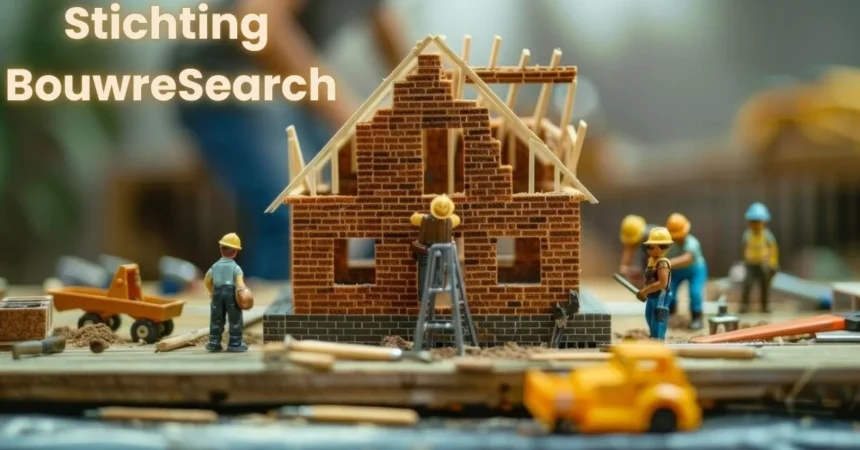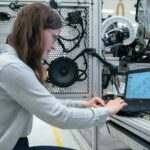Stichting bouwresearch a pioneering force in the construction industry, has consistently pushed the boundaries of innovation, research, and sustainability since its founding. Through in-depth analysis, reliable resources, and practical application, SBR has advanced building methodologies while shaping the future of construction in the Netherlands. This article explores SBR’s history, contributions, research projects, and impact on the construction sector.
What is Stichting Bouwresearch (SBR)
Stichting bouwresearch, commonly known as SBR, is a research foundation that brings together professionals, experts, and researchers in the building and construction sector. The organization, with its inclusive approach, strives to be a hub of knowledge for developing innovative technologies and processes to improve construction quality, sustainability, and overall industry performance.
Founded in 1959, the organization’s mission has remained steadfast: to lead and facilitate the Dutch construction industry’s move toward cutting-edge research and practical, data-driven advancements. SBR is a pivotal bridge between practical construction techniques and the theoretical aspects necessary for innovation. By creating tangible improvements across a variety of subfields, such as building materials, energy use, safety standards, and construction methods, SBR has had a lasting and reassuring impact on the building industry’s development.
History of Stichting Bouwresearch
SBR’s history spans multiple decades, and during this time, it has played a pivotal role in introducing research-led advancements in the construction sector. Here is a glimpse of its developmental journey.
The Early Years
When Stichting Research was first established in 1959, the construction world was vastly different from today’s. The industry in the Netherlands and globally was focused primarily on post-World War II reconstruction, which led to the rapid industrialization of construction methods. While SBR’s initial focus was on improving and optimizing existing processes, it aimed to foster research within the sector and introduce quality, sustainable, and lasting changes.
By bringing together the best minds in the building industry, SBR started developing strategies that bridged the gaps in existing construction practices. The goal was clear: to improve the quality of construction while lowering costs and maximizing efficiency.
Expansion and Diversification
In the following decades, SBR expanded its areas of focus. It began conducting and publishing research on areas such as:
- Energy efficiency: In the 1980s, as global awareness of environmental issues grew, energy-efficient buildings became a priority for the organization.
- Innovative building materials: SBR kept its finger on the pulse of cutting-edge construction technologies, particularly new types of durable and sustainable materials.
- Building automation: Over the years, the research foundation explored innovative technologies, construction robots, and IoT applications.
This research agenda continued into the 21st century with an even broader focus on the integration of digital tools and technologies and the growing demand for greener and more sustainable building practices.
The Role of SBR in Modern Construction
SBR’s role today continues to expand, emphasizing sustainability, circular economy practices, and digital construction processes. Modern advancements have mainly been shaped by research facilitated by SBR and the introduction of concepts like BIM (Building Information Modeling), energy efficiency certifications, and cost-effective yet sustainable building materials.
By hosting research projects, organizing educational events, and collaborating with industry stakeholders, SBR has contributed to significant shifts in the construction sector. Its primary areas of influence include:
Sustainability in Construction
Sustainability is now critical for builders, architects, and planners worldwide. As more industries face pressure to adopt greener practices, the construction industry has increasingly embraced sustainability through innovations that reduce its environmental footprint. SBR has played an essential role by supporting research and providing greener construction techniques and standards guidelines. These practices include:
- Energy-efficient building designs that focus on reducing operational energy needs.
- The use of recyclable building materials is integral to promoting a circular economy.
- Installation of renewable energy sources such as solar panels and wind turbines in construction projects.
SBR’s research on eco-friendly materials has helped the industry minimize waste, improve energy performance, and boost long-term building resilience.
Technology and Digitalization in Building Processes
The construction industry has not remained impervious to technological advancements. SBR has been instrumental in introducing tools and methods to integrate technology into construction processes. Whether it is BIM, AI-driven project management tools, or robotic automation, SBR has consistently researched and endorsed these emerging technologies. The digital transformation of the construction industry facilitates several benefits, such as:
- Enhanced efficiency in terms of construction time and cost management.
- Improved collaboration between various stakeholders in a project through interconnected digital systems.
- More precise construction simulations to detect potential problems or delays ahead of time.
Additionally, SBR continues to drive the integration of digital twins, augmented reality, and artificial intelligence to enhance real-time collaboration in the industry.
Standardization and Safety
Standardization is another key aspect where SBR has had a considerable influence. Establishing construction safety protocols and consistent building standards is paramount for reducing accidents and ensuring the built environment is safe. To ensure worker safety, building integrity, and risk management, SBR has established standard operating procedures in numerous research studies.
Benefits of Standardization in Safety
- Reduction of occupational health risks in construction projects.
- Ensuring uniformity in material quality and construction methods.
- Ensuring compliance with national and international safety regulations.
Contribution to Building Performance & Innovation
Beyond technological advancements, SBR’s continuous research into building performance has significantly impacted the construction industry. Over time, the organization has expanded its work areas to incorporate issues like energy usage, the cost of materials, lifecycle management, and more, thereby shaping the industry’s practices and standards.
Improving the Longevity of Buildings
Long-term structural integrity and durability are cornerstones of sound construction, and SBR’s work assessing building materials is essential. Through extensive testing and analysis, SBR ensures that building elements and technologies are both long-lasting and able to withstand the test of time. This improves users’ safety and maximizes the overall value of construction projects.
Key Areas of Focus for Stichting Bouwresearch Today
Today, Stichting Bouwresearch’s research focuses on cutting-edge technologies, sustainability, safety, cost management, and the circular economy. With growing attention to environmental concerns and climate change, the importance of sustainable construction practices cannot be overemphasized.
Focus Areas of Current Research
- Sustainable building designs and energy usage.
- Circular construction and reducing construction waste.
- Green energy and alternative sources like solar power.
- Integrating artificial intelligence in project planning and design.
- Innovative building technologies such as automation, sensors, and IoT devices.
Collaborative Research Partnerships
SBR has also fostered partnerships with international researchers, government bodies, educational institutions, and industrial entities to improve knowledge-sharing and create stronger solutions to the construction industry’s challenges. Their role in global research collaboration continues to support developments in construction at both the local and international levels.
Conclusion
Stichting Bouwresearch’s consistent commitment to advancing the construction industry is unquestionable. From facilitating groundbreaking research and encouraging sustainability to embracing technology-driven innovations, SBR plays an indispensable role in shaping the future of construction. As construction techniques become more sustainable and sophisticated, the research carried out by SBR will only become more integral. As the industry faces further challenges related to climate change, energy demands, and sustainability, SBR’s contribution will be vital in ensuring built environments’ resilience, safety, and efficiency.
Frequently Asked Questions (FAQ)
What is Stichting Bouwresearch (SBR)?
SBR is a research foundation in the Netherlands that focuses on advancing construction technologies and promoting innovation in building techniques, sustainability, and safety standards.
How has SBR impacted the construction industry?
SBR has significantly improved building materials, sustainable design practices, energy efficiency, safety standards, and technological advancements in the construction industry.
What are the main research areas at SBR?
SBR focuses on sustainability, energy-efficient building techniques, digitalization, innovation in construction materials, and ensuring construction safety standards.
Is SBR involved in international construction research?
Yes, SBR collaborates with international entities, educational institutions, and governments to promote the global sharing of best practices and foster research to benefit the global construction sector.
Can SBR help improve building sustainability?
Yes, SBR works extensively to create guidelines and innovations for more sustainable construction techniques that reduce environmental impact, waste, and energy use.
How can construction companies benefit from SBR?
Construction companies can access the latest research, methodologies, and insights to adopt innovative and sustainable practices that improve project outcomes and comply with safety standards.
Is SBR involved in innovative building technology?
Yes, SBR promotes the integration of innovative technology, including IoT, automation, and digital tools, to make buildings more creative and more efficient.
Does SBR offer guidelines for energy-efficient building designs?
SBR provides comprehensive research and guidelines to help the construction industry implement energy-efficient designs, reducing operational energy use and environmental impact.







